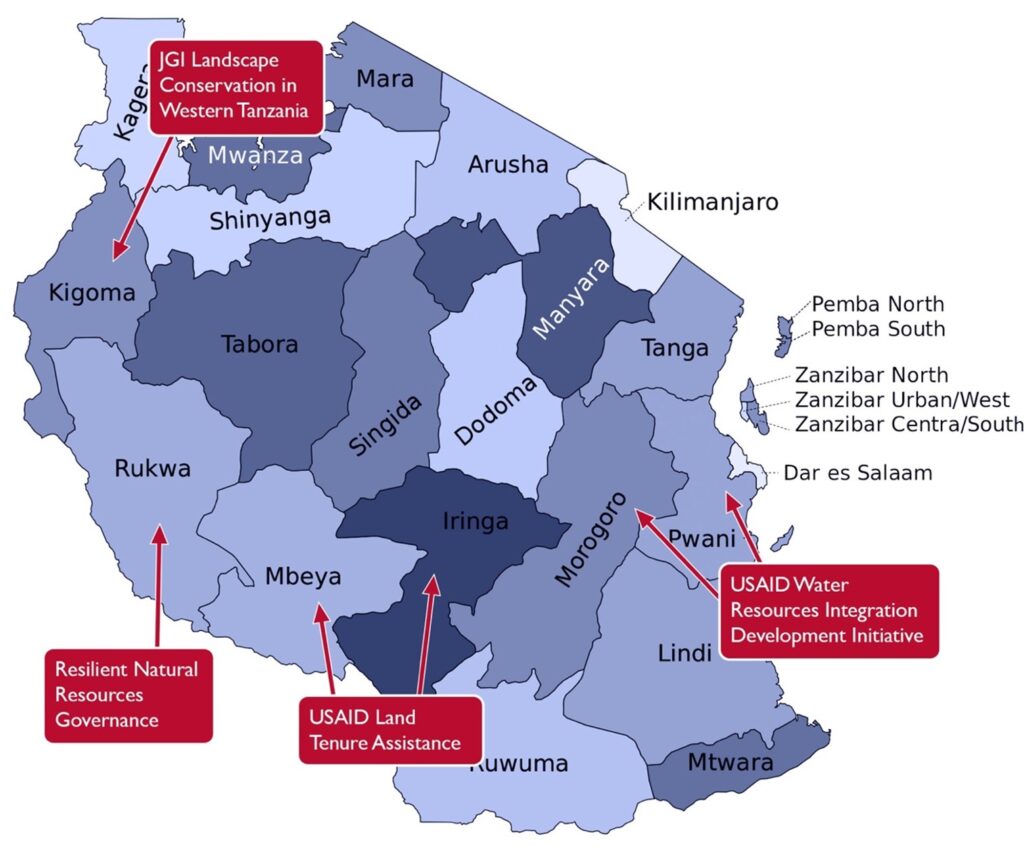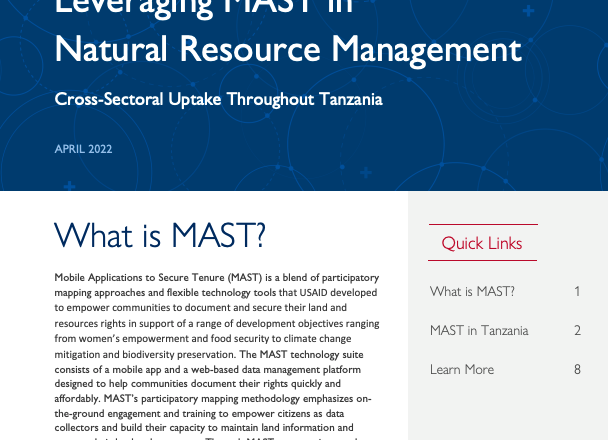Mobile Applications to Secure Tenure (MAST) is a blend of participatory mapping approaches and flexible technology tools that USAID developed to empower communities to document and secure their land and resources rights in support of a range of development objectives ranging from women’s empowerment and food security to climate change mitigation and biodiversity preservation. The MAST technology suite consists of a mobile app and a web-based data management platform designed to help communities document their rights quickly and affordably. MAST’s participatory mapping methodology emphasizes on-the-ground engagement and training to empower citizens as data collectors and build their capacity to maintain land information and manage their land and resources. Through MAST, community members can efficiently collect information necessary to enhance tenure security— for example, names and photographs of people using and occupying land, names of neighbors who share a border, details about land use, and a basis for their land claims. Households can then use that information to obtain land documents.
In Tanzania, MAST has been scaled from a small pilot that delivered 900 customary documents called Certificates of Customary Right of Occupancy (CCROs) in the village of Ilalasimba to a nation-wide program that a variety of donors and organizations including USAID, the U.K. Foreign, Development, and Commonwealth Office (FCDO) and others have used to deliver nearly 400,000 CCROs and counting.

This case study examines cross-sectoral applications of MAST beyond land tenure to sectors ranging from conservation to water and sanitation. View the full case study here.


